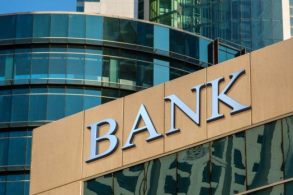Bank Forex, online trading through bank brokers
The forex market is home to many participants who conduct currency transactions for their own needs or provide intermediary services to traders.
Banks are among these participants; they don't simply execute the market; they shape it thanks to their available funds.
Bank-based forex, on the other hand, is when a bank acts as an intermediary, providing its clients with access to currency transactions.
Essentially, it assumes the responsibilities of a dealing center, sending clients' trades to the market and charging a commission for doing so, which is the primary purpose of such activity.
Many people associate banks with reliability and security, which is why they are tempted to trade through them. However, in reality, this approach also has its pros and cons.
Pros and cons of bank forex
Let's start, as always, with the most pleasant, namely, what are the advantages of bank forex as an intermediary for the provision of dealing services:
• Bank reliability - there is a certain guarantee that the bank will not disappear after a couple of years of its existence, while the funds of clients participating in exchange trading are not subject to the law on guaranteeing assets, so there is no need to cherish illusions.
• High liquidity - transactions are entered into the interbank market, which ensures high liquidity of most assets.
• Availability of a license - as a rule, bank forex is carried out under the license of the country in which the bank's head office is located, and not under a license from an offshore jurisdiction.
• Convenience of replenishment and withdrawal of money, since the trader's account can be linked to a plastic card, on the other hand, the number of ways to replenish the account is also limited by this bank card.
In general, everything is solid and safe, as is customary in the banking environment, most of the largest Russian banks provide services for organizing exchange trading.
At least such companies as Sberbank, Alfa-Bank, and VTB have brokerage divisions.
 Well, now let's talk about the disadvantages, as it turns out, hiding behind the image of the bank, we are deceived as usual, in fact, not everything is as rosy as they say in the advertising of such companies:
Well, now let's talk about the disadvantages, as it turns out, hiding behind the image of the bank, we are deceived as usual, in fact, not everything is as rosy as they say in the advertising of such companies:
• Bank Forex - it is implied that you enter into an agreement for brokerage services with the bank.
In fact, almost always the second party to the agreement is an offshore company, which simply has permission to use the brand of a well-known bank in advertising.
That is, the probability of bankruptcy is not slightly higher than that of any classic broker.
• Protection of funds - the deposit used for trading on Forex is not insured by the Deposit Insurance Agency.
• Place of registration of the broker - almost always ends up in an offshore zone, even if the name is very similar to the name of a bank you know. This bank simply acts as the founder.
• Limitation of the provision of services - that is, brokerage services are provided only to existing clients of the bank, this moment is also often present. And in order to start trading, you first need to visit a bank branch and open an account there.
• Leverage – or more precisely its size, which rarely exceeds 1:20, meaning that it will not be possible to use a strategy such as scalping.
• Tax agent - tax is automatically levied on profits earned from exchange trading.
There are also other restrictions that may be a bit unusual for traders who have already tried working with standard dealing centers.
I won't comment on the quality of the services provided; it's best to try everything yourself and compare, and then decide whether a standard broker or a bank-based forex broker is more suitable for you.

